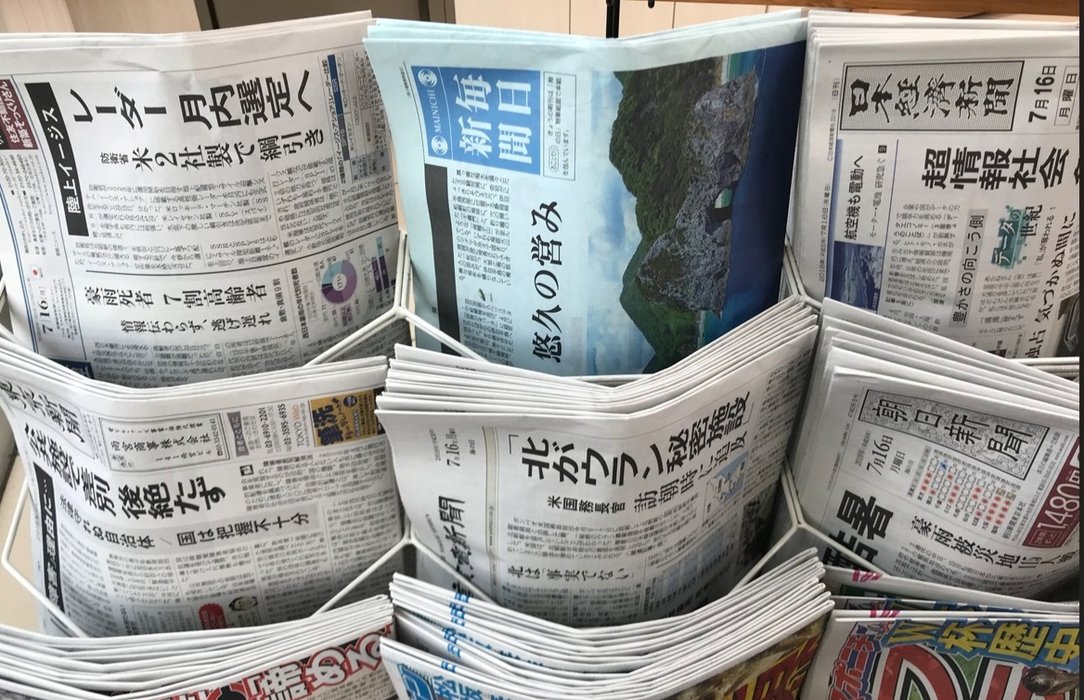
The state of civic space in Japan is rated ‘narrowed’ by the CIVICUS Monitor. While the space for freedom of expression and peaceful assembly is relatively free, restrictions on press freedom, censorship, as well as discrimination against the LGBTQI+ community have been documented. The government has also imposed tougher penalties for criminal defamation.
In recent months, the press freedom ranking for Japan dropped, while a revised law was enacted which allows for the swift removal of defamatory online posts. There were also protests on Palestine, revision to the immigration law and hike in university tuition fees.
Expression
Press freedom rankings drop
Japan fell by two places from 68th to 70th in the 2024 world freedom of press rankings, according to international journalist organisation Reporters Without Borders (RSF).
According to RSF, while media freedom and pluralism are generally respected, traditional and business interests, political pressure and gender inequalities often prevent journalists from completely fulfilling their role as watchdogs.
The system of kisha clubs (reporters’ clubs), which allows only established news organisations to access press conferences and senior officials, pushes reporters toward self-censorship and constitutes blatant discrimination against freelancers and foreign reporters.
RSF stated that a vaguely-worded regulation, enacted in 2021, will be applied in 2024, restricting the public’s access, including journalists, to 583 areas near defence facilities and infrastructure deemed of “interest to national security,” such as nuclear power plants and military bases. Violations will be punishable by up to two years in prison and/or a fine. The government also refuses to amend a law on the protection of specially designated secrets, which punishes the publication of information obtained “illegally” with up to ten years in prison.
Revised law enacted for swift removal of defamatory online posts
On 10th May 2024, Japan's parliament enacted an amended law aimed at facilitating the swift removal of defamatory content on social media platforms like Facebook and X with more transparency.
The revised provider liability limitation law mandates the operators of such platforms to set up points of contact for accepting deletion requests and disclose criteria for removing posts, among other measures. It will take effect within a year. The law also requires operators to notify people within a specified time frame whether posts will be deleted.
However, it uncertain if the law adheres to international human rights obligations under the International Covenant on Civil and Political Rights (ICCPR) to protect freedom of expression and the Manila Principles on Intermediary Liability, which hold that content should not be required to be restricted without a judicial order, and that requests for restriction of content must be clear, unambiguous, and follow due process.
Peaceful Assembly
Protests on Palestine, immigration law and tuition fees hike
Over the last few months, protests have been held in Japan without any reported restrictions.
🇯🇵 Thousands take to Tokyo streets against Rafah invasion. Today's march was probably the largest pro-Palestinian protest in Japan since the ground invasion of Gaza. 🇵🇸 pic.twitter.com/i636kpj8rm
— 🇵🇸🇯🇵Thoton Akimoto (@AkimotoThn) May 11, 2024
On 11th May 2024, hundreds gathered for a pro-Palestine rally through the streets of Shibuya in Japan's capital Tokyo. Led by a second group waving banners depicting the Intifada, the demonstration gained traction as it moved through Tokyo.
The protesters chanted "Boycott Israel!" in support of the Palestinian cause and condemned Israel's ongoing attacks in the Gaza Strip. Despite police presence, the determined crowd marched through the streets to express their opposition to the Israeli airstrikes on Rafah. The protests on Palestine in Japan have continued in recent months.
Protests and student encampments are being established in Japan including Waseda University and University of Tokyo pic.twitter.com/9dRV0AaBQI
— TIMES OF GAZA (@Timesofgaza) May 3, 2024
In May 2024, it was reported that university students in Japan have also created encampments and held protests on at least seven different occasions in opposition to Israel’s ongoing genocide in Gaza. The camps are the expression of significant anti-war sentiment in Japan.
ざわつく東大生、10万円も授業料上げるってマジか? 学園祭で抗議勃発「国立大の使命が果たせない」:東京新聞 TOKYO Web https://t.co/KITZbrzcuk
— 本田由紀 (@hahaguma) May 21, 2024
On 19th May 2024, there were protests against the proposal for the first increases in tuition fees in two decades. Around 20 students held protest banners with slogans such as "Listen to students" and "Stand firm against raising tuition fees." Opposition is spreading among students to a University of Tokyo proposal which would raise fees by around 100,000 yen (USD 635) per year and could have repercussions for other national universities across Japan.
On 5th June 2024, thousands gathered outside the National Diet (parliament) building to protest revisions to Japan's immigration law, which had been set for a vote in a House of Councillors committee the following day.
The rally's organisers, including the Anti-Poverty Network, estimated turnout at about 5,500 people. Under the revised law, foreign residents who have been denied refugee status two or more times can be deported even while a further application is pending, changing the current rule that prevents deportations of those seeking refugee status across the board.